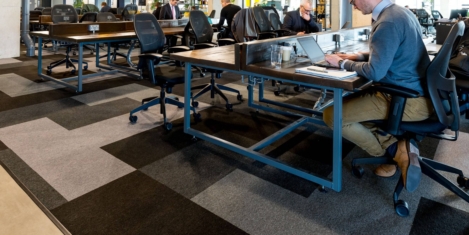July 18, 2018
Freelancers and small business owners find it impossible to stop working on their holidays
 Small business owners and freelancers are unwilling or unable to switch off from work during their holidays, a new study claims. The survey from cloud accounting company FreeAgent claims that over 90 percent of micro-business owners admit to checking work-related emails or doing work-related admin while they are on holiday – with nearly two thirds (61 percent) saying that they do so regularly. In the poll of nearly 600 freelancers and micro-businesses about their experiences of self-employment, 38 percent of respondents said they work more than 48 hours in a typical week – while 7 percent said that they typically work 64 hours or more per week. In addition, one in nine (11 percent) respondents will just take a week or less of holiday in 2018 – including 5 percent who do not expect to take any time off at all from their business this year.
Small business owners and freelancers are unwilling or unable to switch off from work during their holidays, a new study claims. The survey from cloud accounting company FreeAgent claims that over 90 percent of micro-business owners admit to checking work-related emails or doing work-related admin while they are on holiday – with nearly two thirds (61 percent) saying that they do so regularly. In the poll of nearly 600 freelancers and micro-businesses about their experiences of self-employment, 38 percent of respondents said they work more than 48 hours in a typical week – while 7 percent said that they typically work 64 hours or more per week. In addition, one in nine (11 percent) respondents will just take a week or less of holiday in 2018 – including 5 percent who do not expect to take any time off at all from their business this year.



























 Improved living standards, deflating pension pots and legal protection against age discrimination have all helped to nudge up the retirement age. The result is that for the first time since the Industrial Revolution five generations of employees are now working side by side. According to a new survey, two thirds of organisations (66 per cent) say that an age diverse workforce helped the company to have a more comprehensive skillset and knowledge base and more than seven in ten (71 per cent) felt that a multi-generational workforce brought contrasting views to their organisation. However, in the YouGov survey of middle market businesses commissioned by RSM, four in ten companies (41 per cent) said that a multi-generational workforce also increased the risk of conflict in the workplace.
Improved living standards, deflating pension pots and legal protection against age discrimination have all helped to nudge up the retirement age. The result is that for the first time since the Industrial Revolution five generations of employees are now working side by side. According to a new survey, two thirds of organisations (66 per cent) say that an age diverse workforce helped the company to have a more comprehensive skillset and knowledge base and more than seven in ten (71 per cent) felt that a multi-generational workforce brought contrasting views to their organisation. However, in the YouGov survey of middle market businesses commissioned by RSM, four in ten companies (41 per cent) said that a multi-generational workforce also increased the risk of conflict in the workplace. 







